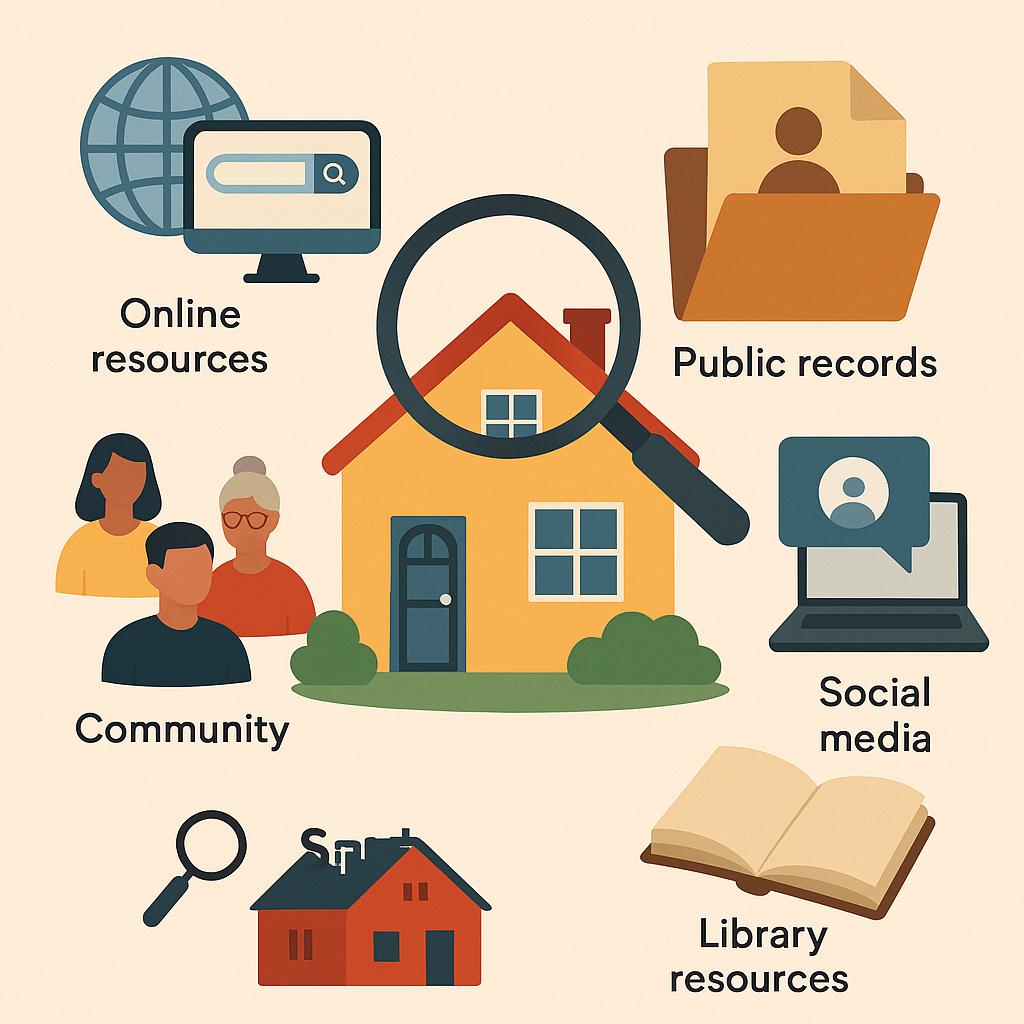Have you ever wondered who owns that cool house down the street or that empty lot on the other side of town? Knowing who owns a specific property can be very helpful for many reasons, whether that be researching a purchase, settling a dispute, or learning the history of a neighborhood. Luckily, there are more than a few ways to find out property ownership records for free.
Guiding Online Resources
How to find out who own a property? There are many ways, one of which is online resources. With the age we live in now, there are various online databases where you can find out information about a property. Most county assessor websites can search for property records on the web. Anyone can go to a local county (or other governmental authority) assessor or property search page and look up real estate by address or parcel number. Ownership details, property tax information, and occasionally previous owners can often be found on these databases. Another great type of online tool is GIS (geographic information system) maps. Search your county zoning for GIS mapping, which shows your parcel map, ownership, and sometimes even zoning.
Exploring Public Records
Public records are still the primary way to determine who owns a property. Property deeds and titles are recorded at county government offices like the county clerk’s or recorder’s office. By physically visiting these offices, one can get complete knowledge of the ownership history. Some offices might have online access, while others would require visiting in person to get access to records. Courthouses are also home to important records such as property tax records and liens. They can include information on present ownership, liens , or mortgages against the property.
Networking in the Community
At times, wearing the community networking hat is one of the best ways to learn who owns properties. Asking neighbors may yield clues or even the direct answer on who owns a given property. Long-term locals typically have some knowledge of property history and how ownership has changed hands over the years. Furthermore, local realtors are another great resource. They have complete access to databases, and they are mostly able to list out actual owners. Having relationships with real estate agents in your area can make it easier to obtain property information and create a network for future real estate endeavors.
Utilizing Social Media
It is not a direct approach, but social media provides hints periodically about whom the said property belongs to. On platforms like Facebook or Nextdoor, local community groups often discuss neighborhood issues, including property questions. A few of these groups allow you to post a respectful question, and residents may appear with the answers. LinkedIn can also be a social network for building relationships with people in the real estate field. Contacting real estate professionals will offer insight or direct people to the proper channels to get property information.
Examining Past Civilizations
Local historical societies frequently possess records and archives that provide insight into property ownership history. They collect documents, photos, and maps that chronicle the development of neighborhoods and specific properties. A historical society may reveal interesting stories and directions of ownership for land not apparent in standard public records.
Sometimes, historical societies partner with libraries or museums to present workshops or talks on local history. Attending these events is a chance to learn about the broader context of property ownership in the community.
Making Use of University Library Resources
Libraries hold masses of information and often have local newspapers, maps, and directories. They can also provide access to digital archives and databases containing property records. Not surprisingly, librarians can help visitors utilize those resources and often point them to specific sections or tools to help in property investigations. In addition, libraries often have subscriptions to niche databases that contain property and real estate records. These free resources can reveal information, including ownership, transaction history, and property assessments.
Conclusion
Tracing property ownership is often possible for free. There are so many free ways to do this. You can find the information you need online or in your community. Anyone can trace property ownership by researching public records, using social media, and involving residents, like libraries and historical societies. Asking who owns a property provides an entryway to learning more about the community, its history, and its future development.




